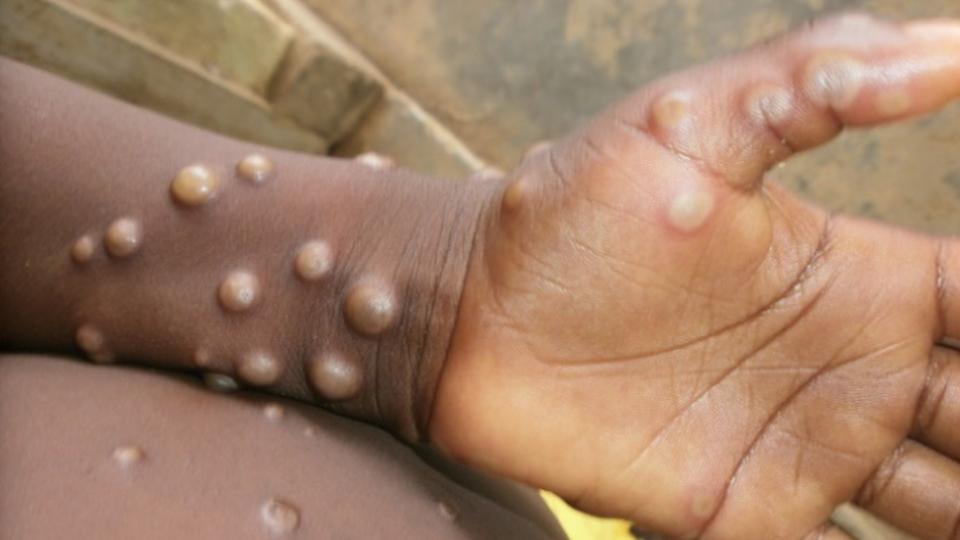Africa on high alert as mpox cases rise quickly

The rapid spread of a new variant of mpox – previously known as monkeypox – has prompted the Africa Centers for Disease Control and Prevention (Africa CDC) to declare a public health emergency.
Earlier outbreaks have been traced back to exposure to animal carriers, and then spread only through close skin-to-skin contact between humans, making it easier to contain infections. Now, however, there are signs that the new variant – dubbed Clade Ib – may be transmitted between people more easily, and could have a higher mortality rate, although that has yet to be proven.
There's no doubt cases in Africa are rising, with more than 13,700 recorded mpox infections and 450 deaths in the Democratic Republic of Congo (DRC) since the start of the year, according to Africa CDC.
DRC is the focal point for the outbreak, accounting for 96% of all cases, but people have been getting sick from mpox in countries where it is not normally endemic, including Burundi, Central Africa Republic (CAR), Kenya, Rwanda, and Uganda.
Africa CDC director general Dr Jean Kaseya said that, while African countries are dealing with the emergence of the new variant at the moment, this is not just an African issue.
"Mpox is a global threat, a menace that knows no boundaries, no race, no creed," he asserted in a speech declaring the public emergency. "It is a virus that exploits our vulnerabilities, preying on our weakest points."
He added: "This declaration is not merely a formality; it is a clarion call to action. It is a recognition that we can no longer afford to be reactive. We must be proactive and aggressive in our efforts to contain and eliminate this threat."
The Clade Ib mpox variant is considered to be much more virulent than the Clade II strain that caused the largest outbreak ever recorded outside sub-Saharan Africa, which saw thousands of cases in the US, Europe, and other parts of the world, mainly spread through sexual contact. Clade I usually causes a higher percentage of people with mpox to get severely sick or die compared to Clade II.
The availability of Bavarian Nordic's mpox vaccine Jynneos/Imvanex/Invamune and Siga's antiviral drug Tpoxx – as well as standard infection control measures – quickly brought that outbreak under control at a time when the world was still recovering from the peak of the COVID-19 pandemic. Two other vaccines have now been developed by KM Biologics and Emergent Biosolutions.
Dr Kaseya said there are plans to buy around 10 million vaccine doses to be used in programmes to limit the spread of mpox within Africa, and the DRC recently approved two mpox vaccines for emergency use.
"Since the eradication of smallpox and the associated decline in smallpox vaccination, reduced population immunity has given the related monkeypox virus an opportunity to cause devastating outbreaks," commented Professor Jonathan Ball, an infectious disease specialist at the Liverpool School of Tropical Medicine (LSTM) in the UK.
"Hopefully the declaration of the current epidemic as a public health emergency will kick-start mobilisation of the necessary infection control measures, including increased production and deployment of existing and highly effective vaccines to bring this infection under control," he added.
Prof Ball said it was important for wealthier countries around the world to help respond to the burden of mpox, which is felt most acutely in low- and middle-income countries.
Professor Marion Koopmans, head of the Institute for Virus Research at Erasmus University Rotterdam in the Netherlands, urged caution, however, on what she said were "big claims in the popular media" about the threat posed by mpox, particularly about its severity and transmissibility.
"More studies are needed to fully understand the situation," she continued. "Virus typing/sequencing is not done in most cases, so it is unclear how widespread Clade Ib is."
On the risk of spread to other parts of the world, Prof Koopmans said: "So far, the likelihood of that is considered to be small, although it is of course possible. Therefore, also outside of the African region, continuing to monitor the situation and typing of newly diagnosed cases should be a minimum."
At the end of July, the European CDC said the risk from mpox remained very low, while the CDC in the US came to the same conclusion in an update posted on 7th August.
Later today, the World Health Organization (WHO) is convening an emergency meeting to see if it is time to declare an international state of emergency, which would unlock funding for emergency response.











